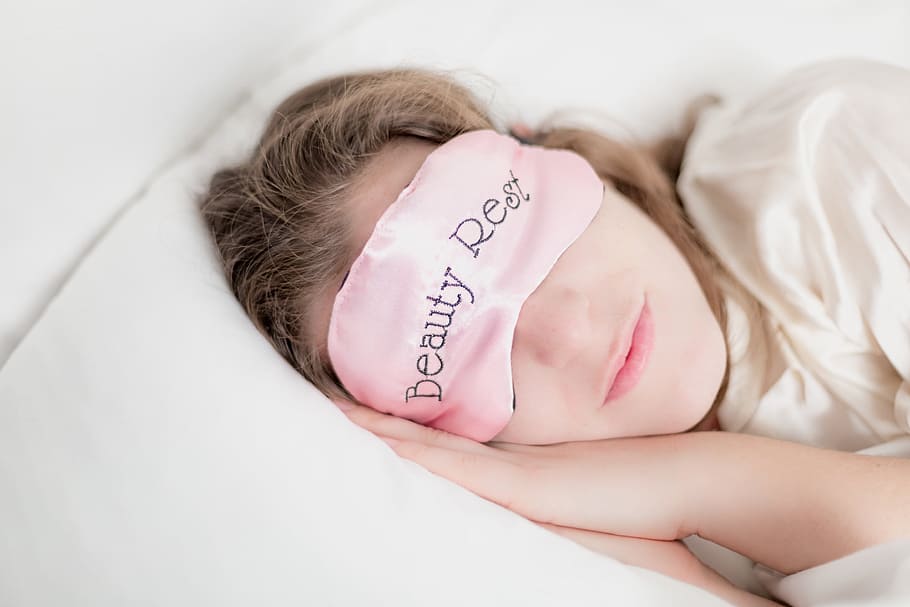There are few things more frustrating in life than failing to get enough sleep. When your mind and body are tired and ready for rest but you simply cannot drift off into dreamland, you are likely ready to try anything to catch the Zs you know you need.
Drug manufacturers know this, and they offer a number of over-the-counter (OTC) solutions that are supposed to help you fall asleep faster and stay asleep longer. However, not everything that markets itself as a sleep aid is telling the truth. Here are a few of the most effective OTC sleep aids you can find, and how to use them safely.
Diphenhydramine
Diphenhydramine is an antihistamine, which is typically used to combat allergy symptoms like itching, watery eyes, cough, runny nose and sneezing. It works by blocking a natural substance created by the body during an allergic reaction. This compound is most commonly associated with Benadryl, but there are a few other OTC antihistamine products that rely on diphenhydramine — as well as a few OTC sleep aids.
In addition to blocking histamine, diphenhydramine offers sedating effects, making users feel relaxed and drowsy. However, diphenhydramine comes with a number of negative side effects, to include constipation, urinary retention, blurred vision and dry mouth. Most doctors agree that diphenhydramine is safe for acute use, if you need some help falling asleep on a single night. However, if you suffer from chronic sleep trouble, or if you have a special health condition that requires specific treatment, you should look for another sleep solution.
Doxylamine Succinate
Doxylamine succinate, often shortened to doxylamine for simplicity, is another sedating antihistamine like diphenhydramine. In addition to blocking histamine, doxylamine also blocks acetylcholine, another natural substance that the body produces during an allergic reaction. Yet, because doxylamine is much less effective than diphenhydramine and other antihistamines, it has fallen out of use for this application and instead is used almost exclusively as a sleep aid, in products like Unisom.
While doxylamine succinate can be safe and effective in the short-term, like diphenhydramine, it is not a long-term solution to insomnia or other chronic sleep woes. The potential side effects for doxylamine are also similar to diphenhydramine, with the addition of stomach pain, dizziness and headache. You should talk to your doctor to determine whether diphenhydramine or doxylamine succinate is better for you, or whether you need a different sleep solution altogether.
Melatonin
“Have you tried melatonin?” is a refrain frequently heard by those suffering from troubled sleep. Melatonin is a hormone naturally produced by the body to control the sleep-wake cycle. When your body is ready for sleep, it tends to secrete more melatonin, and when your body is ready to wake, melatonin levels decrease. You can buy melatonin supplements to alter your body’s natural sleep-wake cycle and encourage drowsiness sooner — but melatonin is not without some risk.
If you take melatonin supplements too frequently or in too great a dosage, your body will stop producing its own melatonin, worsening your sleep issues. There are some side effects associated with supplemental melatonin, to include dizziness and nausea as well as depression, anxiety and disorientation. Plus, melatonin is known to interact with a number of exceedingly common medications, such as birth control, blood pressure drugs, diabetes medications, seizure treatments and more.
Melatonin is not the simple, natural cure that many people believe it to be. You should always consult your doctor before tying melatonin, even though it is so widely available OTC.
CBD
The widespread legalization of cannabis as a medical and recreational drug has opened new doors to researchers looking for solutions to common health conditions like disordered sleep. Cannabidiol, or CBD, is a non-psychoactive compound found in cannabis plants, and thanks to updates to federal law, almost any adult has easy access to all manner of CBD products, like Uleva Sleep Extra Strength.
Sleep is not the only health condition thought to be improved by CBD. Though more research is warranted, many users believe that CBD is an invaluable tool for fighting pain, inflammation and anxiety — all of which can have ramifications on sleep, too. There are not many side effects associated with CBD; the most common are dry mouth and reduced appetite. Still, if you have any additional health conditions, you should consult your doctor about using CBD to help with your sleep.
Generally, OTC sleep aids are not going to be long-term solutions to your troubled sleep if you suffer from chronic insomnia or other serious sleep issues. However, you can use any of these OTC sleep products as long as you get the go-ahead from your healthcare provider.

